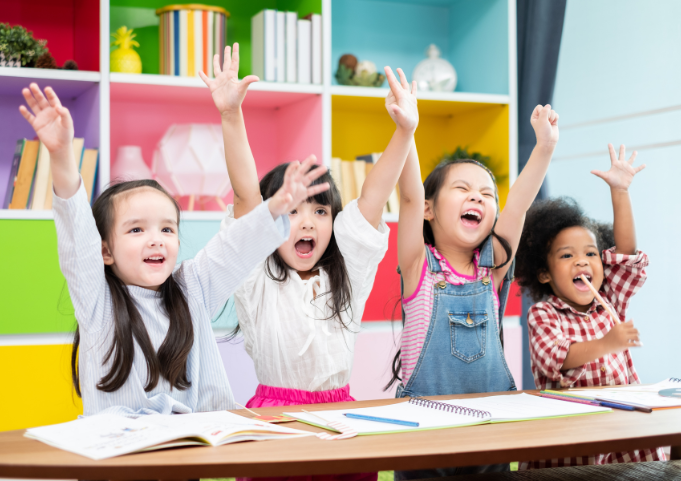Self-regulation tools and SEL (social-emotional learning) skills are essential for children’s success in school and at home. These skills help children manage their emotions, thoughts, and behaviors so that they can learn, build relationships, and make healthy choices.
Children with strong self-regulation skills are better able to manage their emotions when they are frustrated or upset. They are more likely to follow instructions and are often more cooperative and helpful. Encouraging self-regulation at school and at home enables children to focus more attentively, behave appropriately, and succeed in the social situations that inevitably pop up during the school day.
To build these skills, parents, and educators can reinforce the tenets of social-emotional learning:
- Emotional awareness: This is the ability to recognize and understand one’s own emotions and how they affect one’s thoughts and behaviors.
- Self-management: This is the ability to manage one’s emotions and behavior in a healthy way.
- Social awareness: This is the ability to understand the emotions and perspectives of others.
- Relationship skills: This is the ability to build and maintain healthy relationships.
- Responsible decision making: This is the ability to make good choices based on one’s values and goals, while being respectful of others.
Building these skills takes time, repetition, and patience! Children learn by watching the adults in their lives. If parents want their children to be able to regulate their emotions, they need to be able to do so themselves, so model good self-regulation! Similarly, children need to be able to communicate about their emotions. Parents can help children learn to do this by providing them with a safe and supportive environment to talk and providing words to help children name what they feel. Teaching children specific coping skills (and when to use them) is also important. Practices like mindful breathing, tapping and shaking, and mantras are portable and immediate ways to regulate. And finally, children learn to regulate their emotions by interacting with others. Parents can help their children develop strong social skills by providing them with opportunities to interact with other children.
Self-regulation tools and SEL skills are essential for children’s success at school and at home. By helping children develop these skills, parents can help them to reach their full potential.




